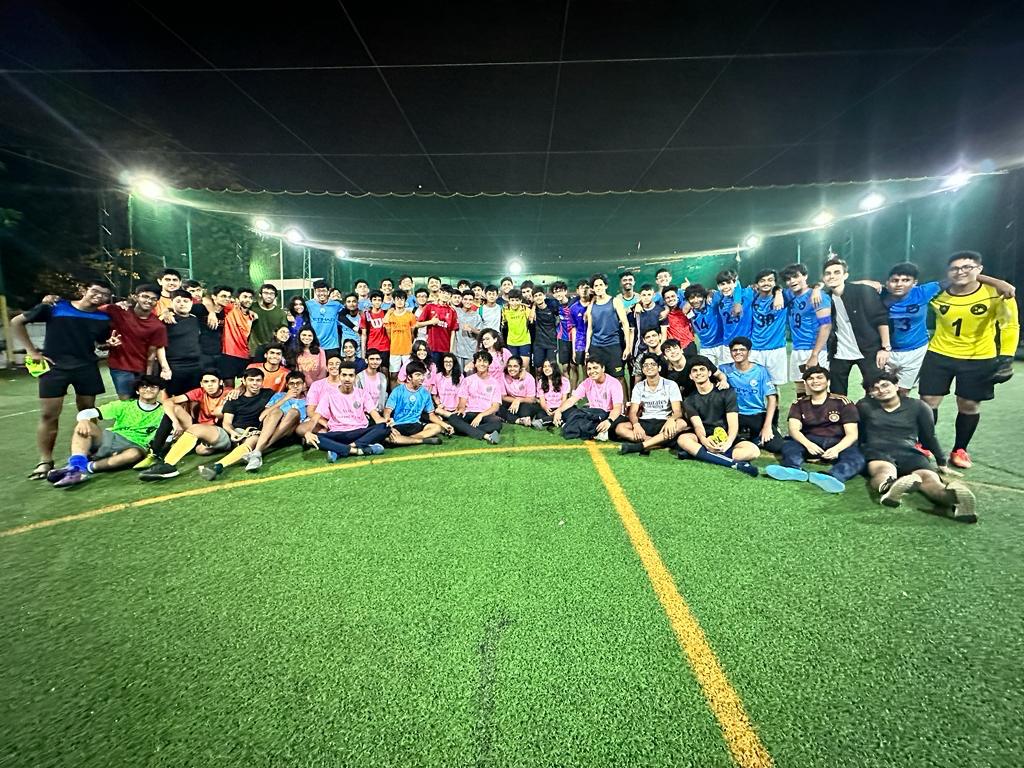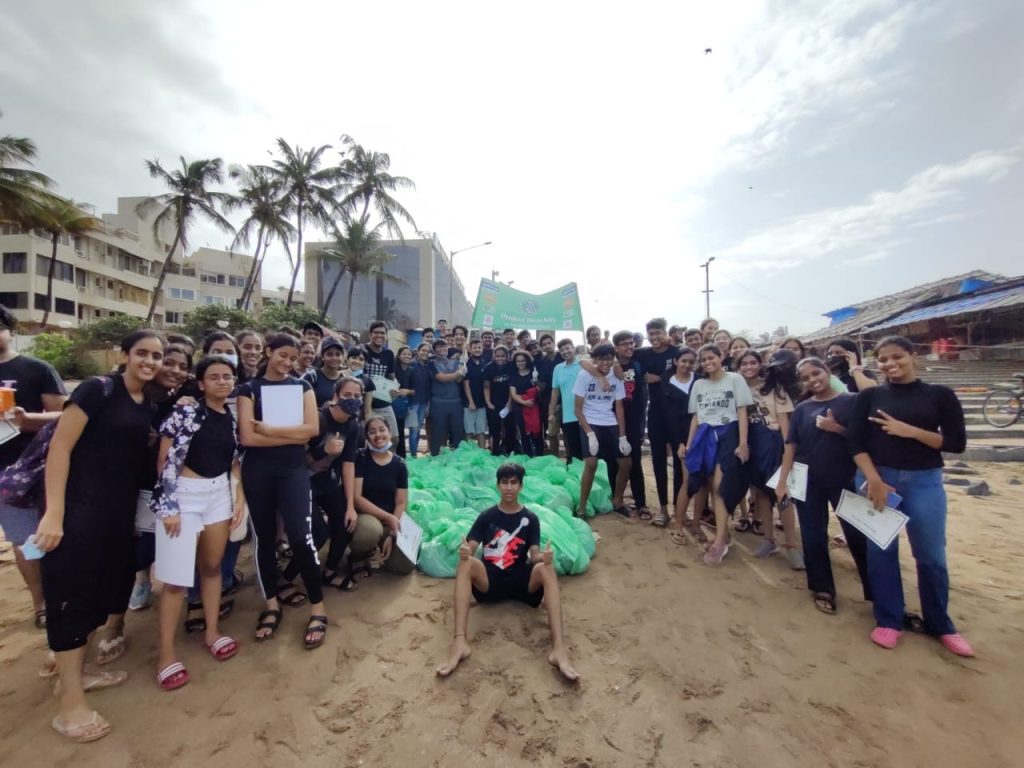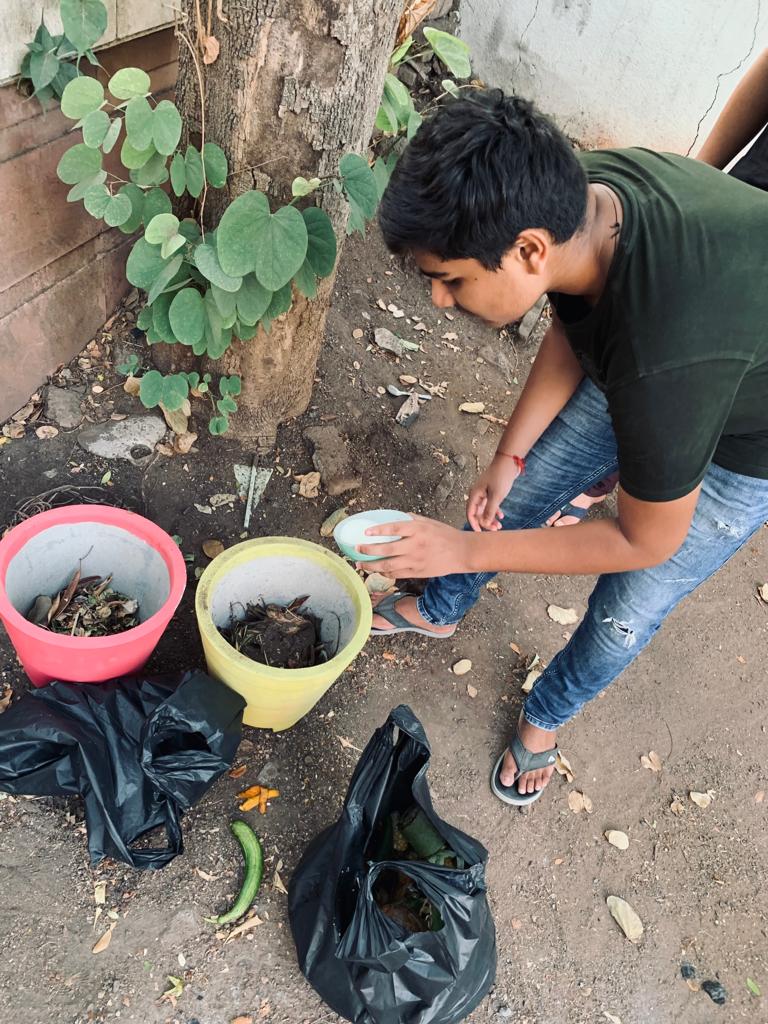(June 14, 2024) Litisha Bagadia and Siya Joshi, the co-founders of the Ayika Foundation, were busy brainstorming their next climate action movement. Their challenge, however, was much larger than simply getting people to show up and then go back home. They wanted to inspire them to do their bit for the earth, not just at a single event but everyday, in their own way. At the time, the FIFA World Cup was just around the corner. They wondered if they could host a football tournament, a fundraiser where all proceeds would go to a local animal shelter. This way, young people could attend a fun event, make new friends and donate to helping stray dogs. ‘Football for Fur’ received more registrations than they could handle.
In fact, ‘How do you keep people motivated,’ was my first question to the teen founders, as they sat down for an interview with Global Indian. By making their events fun, relatable and interactive, they say, both on and off social media. It became one of their most successful events, along with the Ganpati festival cleanup where they collected over 200 kilos of flower waste which was subsequently turned into compost and natural dyes, an effort that fetched Litisha Bagadia the Diana Award in 2023.
“After a point, people start finding social work boring. We want to make it fun and interactive. With Football for Fur, people were doing something they love, for a good cause.” The Ayika Foundation’s mission is to empower young people to join the climate action movement on their own, and so far, their formula has worked like a dream. They have impacted around one million students across the world, with the foundation now operating chapters in Mumbai, Rajkot, Delhi and in J&K, as well as in New Jersey. Driven by the belief that climate action should be a way of life, the Ayika Foundation is also working to instill climate curriculums in schools in India and the US.

Litisha Bagadia and Siya Joshi
The Ayika Foundation
As classmates in Mumbai, Litish and Siya bonded from a young age over their love for climate activism. “It has been almost three years since we began our work,” says Siya. “Even in 10th grade, we were really sure of what we wanted to do.” What they wanted was to be part of the climate action movement – they were aware of the problems surrounding them. However, they soon found that even volunteering was a challenge. Organisations weren’t open to taking on people who were so young. “We weren’t seeing too many young people participating and we wanted to do so actively.”
It pushed them to form the Ayika Foundation. The city’s problems with pollution and waste management were clear to see and Litisha and Siya felt that youthful energy and innovation could be the answer. They began with looking for the perfect name before settling on ‘Ayika’, which they explain translates into ‘environment’. “Branding was the first step – the name, the mission statement and the theme. However, since this was during the pandemic, the founder duo were very limited in terms of what they could do. “The lockdown was happening and Section 144 had been imposed as well, so we couldn’t meet in groups of more than four people,” Litisha recalls. “For the first few months we couldn’t do anything in person. So we started creating awareness.”
That meant social media. Siya, who wants to study design, leaned in on her skills to create reels along with Litisha. “We focussed on simple content that is also actionable, that people can do in their daily lives.” They created awareness around Diwali and Holi, urging people to keep their celebrations eco-friendly.


The Ayika Cup
Making climate activism fun
Their first event, a clean up drive on Juhu beach in July 2022, saw about 80 people in attendance. “We used reels to connect with our audience,” said Siya. “There are many ways to post but reels really bring people to your page.” By this time, the Ayika Foundation had also built a small social media team, with one person handling content, another to make the reels and one more to post. “We wanted to make them fun and relatable. We did a compilation of volunteers picking up waste and a message saying, ‘We can still try’,” says Litisha.
They also used collaborations, and managed to bring Decathlon in as a sponsor. The company representatives came to an Ayika event and handed out vouchers to volunteers. As for the waste they collected on Juhu, they chose not to leave it in the dumpyard nearby. Instead, they worked with a recycling company and got it recycled.
On August 15, the Ayika Foundation did an e-collection drive. “We worked with two housing societies with about 500-600 residents and got around 50 kilos of e-waste recycled.” They did not want this to be a one-time drive, so they installed bins at housing societies for people to leave their e-waste. “Our partner company comes back tot he society and picks it all up, so people living there actually use the bins,” says Siya. This led to their ‘eco-lift’ initiative, where they collected waste from homes, mainly plastic, and got it recycled. The waste was eventually recycled into park or garden benches.
Then came Project Avigna, also one of their biggest events to date. Litisha and Siya and their team tied up with 30 different pandals during the 11-day Ganesh Chaturthi festival and collected around 200 kilos of waste. This was divided into two, with one half handed over to a company that made natural dyes and the other half was turned into compost. This was followed by Football for Fur and even a day-long trek near Mumbai were proceeds were donated to a local animal shelter.


The first cleanup at Juhu Beach
The expansion plan
Led by a student volunteer, Aarav, the Ayika Foundation then spread its wings in New Jersey. “He goes to a public school in New Jersey and they have an environmental club, so we collaborated with them,” says Litisha. Their first project in NJ is a climate action curriculum at a middle school there. “It’s a critical thinking and activity based curriculum that will push people to think about practical ways in which they can contribute to the environment,” Litisha explains. “So there are topics like recycling and waste management, which are made into fun learning modules for young people.”
Every city has unique problems and Ayika does not want a one-size-fits-all solution. They now have a research team to study local issues for the various chapters to focus on. In New Jersey, waste management is a central focus and the team is currently doing a case study on recycling initiatives in the city. Public health and water pollution are also areas of interest and they are now coming up with a plan where students can suggest ideas to save local water bodies.
In Mumbai, Ayika Foundation is collaborating with a local NGO to spread awareness about the nalas in Dharavi. “We are in talks to educate slum dwellers to stop pollution their local nalas,” says Litisha. “The idea is to create a behavioural change, rather than a one-time event.” Week 1 will begin with the nala being cleared, and by week 4, they hope people would have been educated to stop throwing waste into it in the first place. “We are collaborating with an organisation which will help us mobilize the project but we will execute it ourselves,” she explains.
Meanwhile, in Rajkot, they worked with a team of eighth and ninth grade students who did a project to make compost on their own. They brought biodegradable waste from their homes and educated others on how to make compost at home, successfully motivating young people to try it on their own. “Litisha and I went there a few months ago and visited various schools to bring our curriculum project there.”


Ayika Rajkot – Compost Making
Local chapters are key, the co-founders agree. “We send a basic plan and our teams will develop it,” they say. “They know their place best and it’s very important to have support on ground.” Their core team currently has 40 people working full time, and around 500-700 including the partner volunteers.
As they complete 12th grade, Litisha intends to go abroad for her undergrad, while Siya aims to study at the BITS School of Design in Mumbai. “We don’t have a five year plan yet,” they say, adding, “But our two-year plan is to impact 50 million lives.”
Litisha Bagadia and Siya Joshi’s Ayika Foundation creatively combines fun events with educational programs, leading to significant and sustained youth engagement in climate action. Their initiatives demonstrate that meaningful environmental change can be driven by innovative, youth-led efforts that focus on both community involvement and practical sustainability solutions.
- Follow the Ayika Foundation on Instagram.




